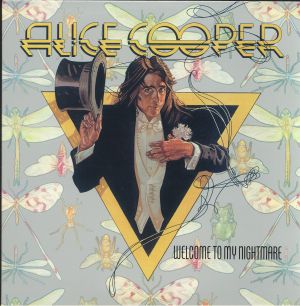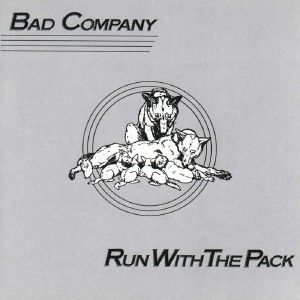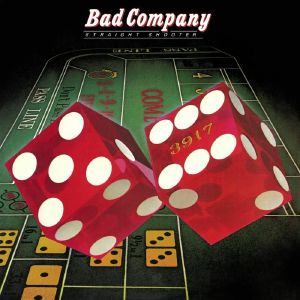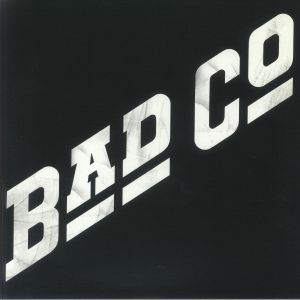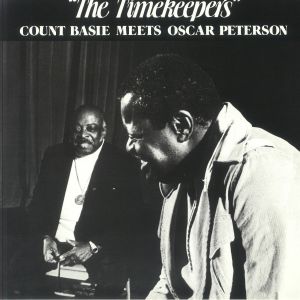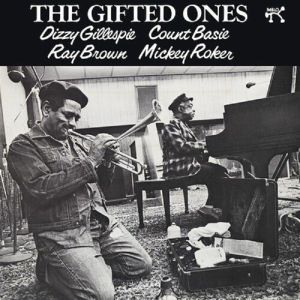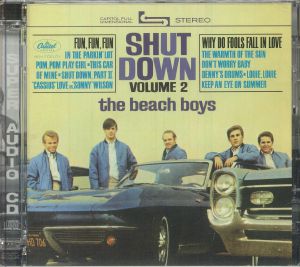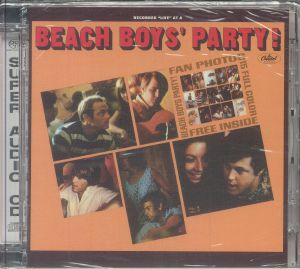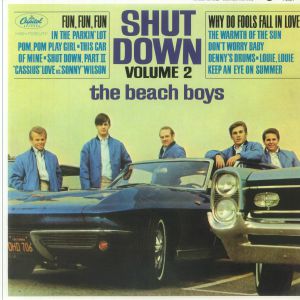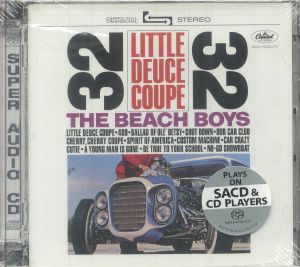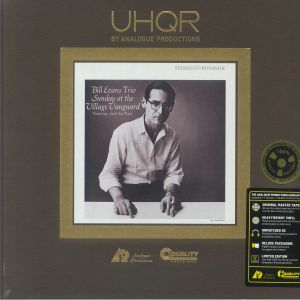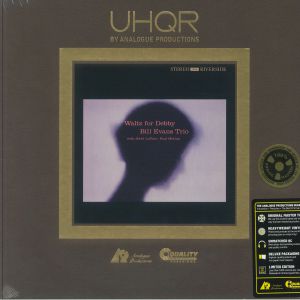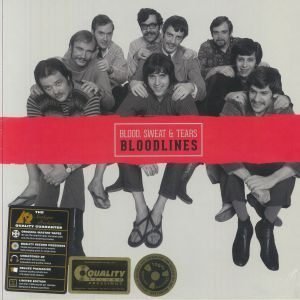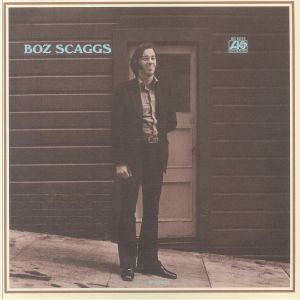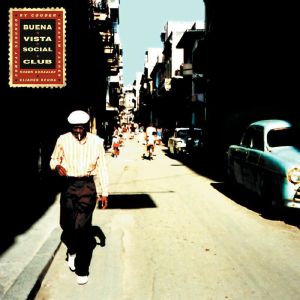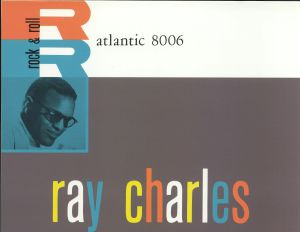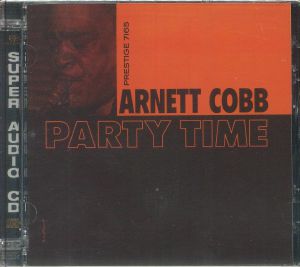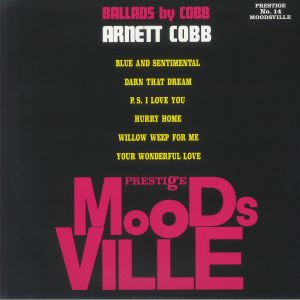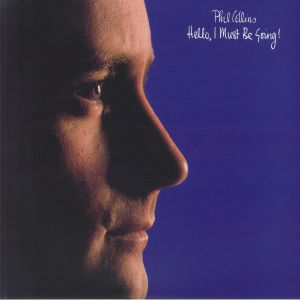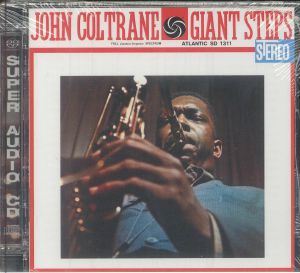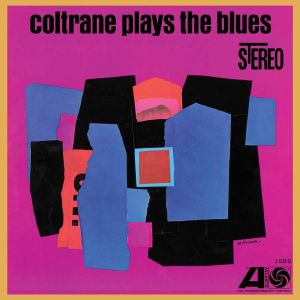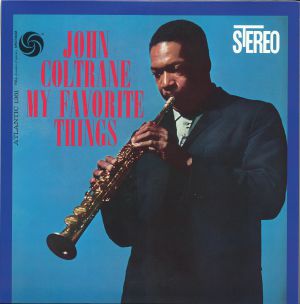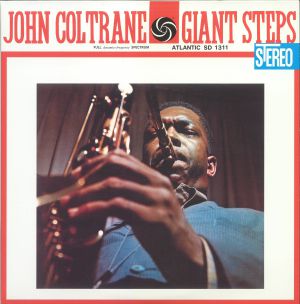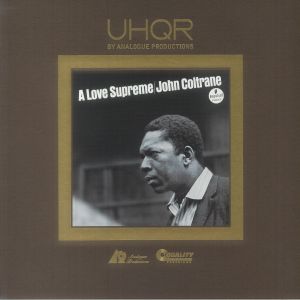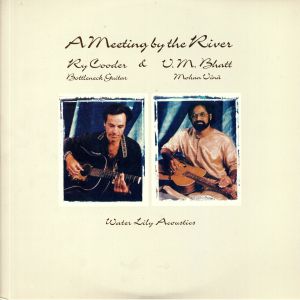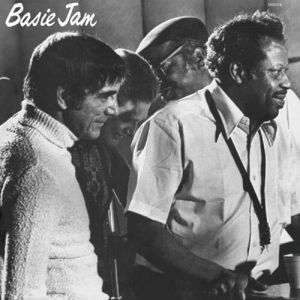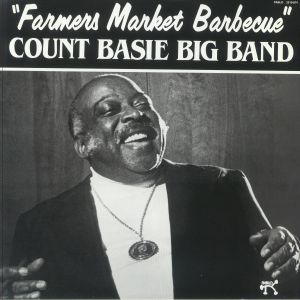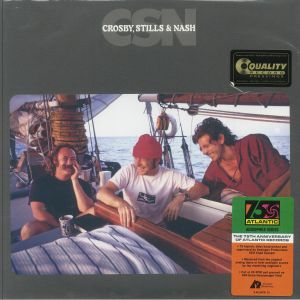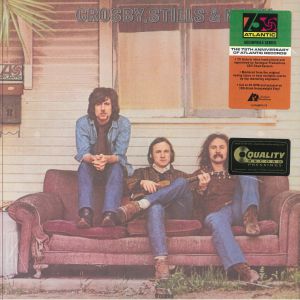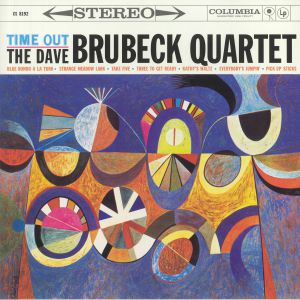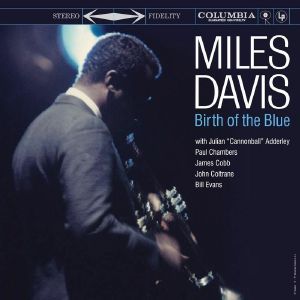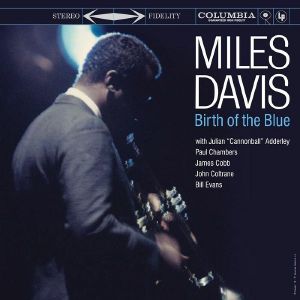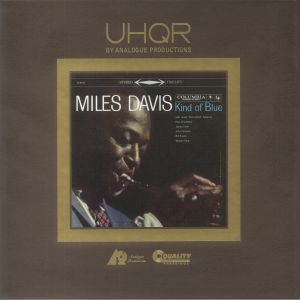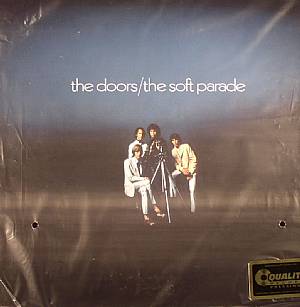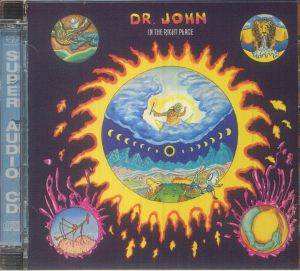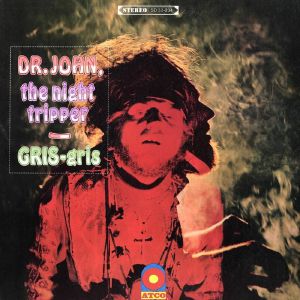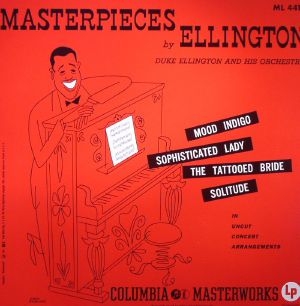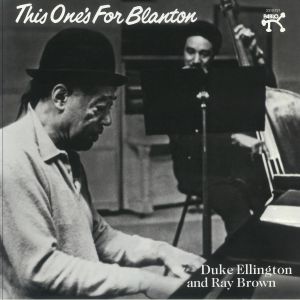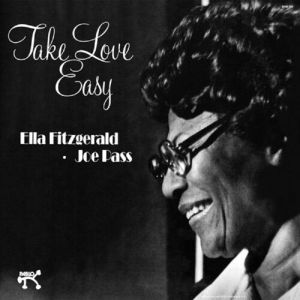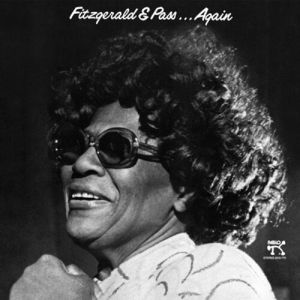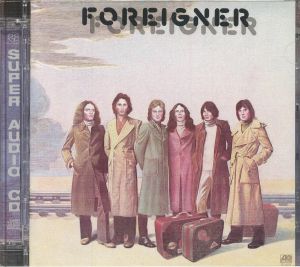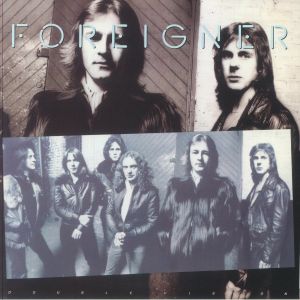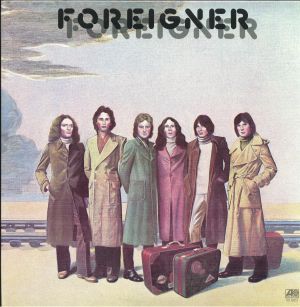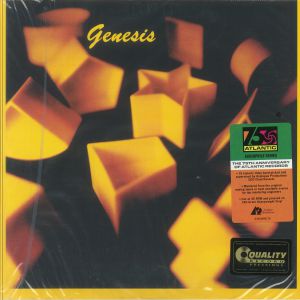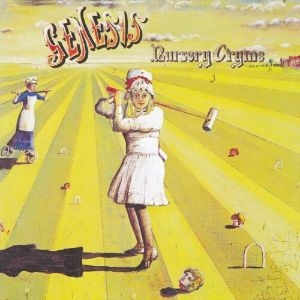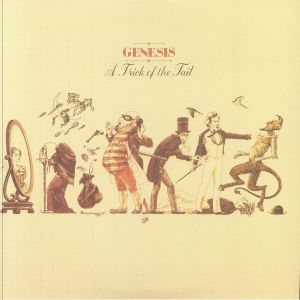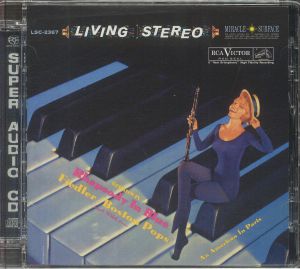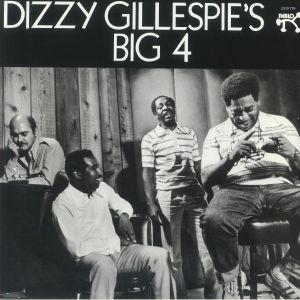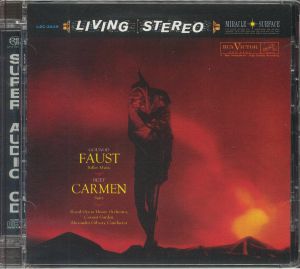Receive new release alerts for Analogue Productions US
Filter
Music
Featured
Release Title
Price
Tags
Analogue Productions US Vinilo y CD
Browse the latest Vinyl & CD releases on Analogue Productions USSimilar labels:
Welcome To My Nightmare (Atlantic Records 75th Anniversary Edition) (gatefold 180 gram audiophile vinyl 2xLP)
Cat: 753088 751578. Rel: 05 Feb 24
Rock
in stock $77.42
Run With The Pack (numbered gatefold 180 gram audiohpile vinyl 2xLP)
Cat: AAPA 038-45. Rel: 28 Mar 25
Rock
in stock $84.10
in stock $46.22
Bad Company (Atlantic Records 75th Anniversary Edition) (gatefold 180 gram audiophile vinyl 2xLP)
Cat: 753088 750977. Rel: 05 Feb 24
Rock
Review: From the wreckage of Free came Bad Company, the English hard rock supergroup fronted by singer Paul Rodgers and featuring his drummer bandmate Simon Kirke, Mott the Hoople guitarist Mick Ralphs, and King Crimson bassist Boz Burrell. Peter Grant, who managed the rock band Led Zeppelin, also managed Bad Company until 1982. The group's eponymous 1974 album debut decidedly proves the band is proudly not progressive - the details make a difference, as do the pastoral acoustics of the closing 'Seagull' - reducing their rock 'n' roll to a strong, heavy crunch; compare 'Ready For Love,' a tune Ralphs brought over from Mott the Hoople, to the original to see how these quartet members keep their heads down as they do their business. All the hallmarks of a top-notch Analogue Productions reissue are here for your pleasure: mastered directly from the original master tape by Ryan K. Smith at Sterling Sound and cut at 45rpm.
… Read more in stock $77.42
Count BASIE meets OSCAR PETERSON
Timekeepers (reissue) (limited 180 gram vinyl LP + booklet)
Cat: APJ 165. Rel: 14 Oct 24
Jazz
in stock $53.18
in stock $55.13
in stock $37.87
in stock $37.60
Shut Down Volume 2 (mono) (limited 180 gram audiophile vinyl LP + inserts)
Cat: AAPP 062M. Rel: 20 Dec 24
50s/60s
in stock $55.13
in stock $37.32
Sunday At The Village Vanguard (remastered) (limited heavyweight audiophile vinyl 2xLP box set + booklet)
Cat: AUHQR 001745. Rel: 06 Aug 24
Jazz
Review: Analogue Productions' UHQR release of the Bill Evans Trio's Sunday at the Village Vanguard is a pinnacle in high-quality vinyl. Limited to 5,000 copies, this 200-gram 45 RPM 2LP set, mastered by Kevin Gray at Cohearent Audio from the original analogue tapes, offers an unparalleled listening experience. The set includes an eight-page booklet with liner notes by jazz critic Bob Blumenthal, enhancing its collectible value. Regarded as one of the greatest live jazz recordings, the album captures the remarkable June 25, 1961, performance of Bill Evans, Scott LaFaro, and Paul Motian at the Village Vanguard. The trio's exceptional musicianship and improvisational prowess are evident throughout, with seamless interplay and innovative approaches to jazz standards and original compositions. The UHQR Clarity Vinyl pressing at Quality Record Pressings ensures the purest sound quality, with improved dynamics, detail, and tonal accuracy. Standout tracks like 'Gloria's Step' and 'Alice in Wonderland' showcase Evans' delicate touch, LaFaro's inventive bass lines, and the trio's extraordinary chemistry. This release not only celebrates exceptional music but also offers an intimate, high-fidelity listening experience.
… Read more in stock $227.21
Waltz For Debby (remastered) (limited heavyweight audiophile vinyl 2xLP box set + booklet)
Cat: AUHQR 001845. Rel: 06 Aug 24
Jazz
Review: Bill Evans' Waltz for Debby, recorded live at the Village Vanguard in 1962, epitomizes jazz's intimate and expressive qualities. As a companion piece to Sunday at the Village Vanguard, this album features Evans' trio in a nuanced, emotional performance that showcases his distinctive approach to jazz piano. The Analogue Productions reissue on 200-gram Clarity Vinyl, pressed at 45 RPM, is crafted to offer an exceptional listening experience. Notable tracks such as 'Waltz for Debby,' along with classics like 'My Foolish Heart' and 'Detour Ahead,' highlight Evans' introspective improvisations and lyrical style. The live recording's atmosphere, with the audience's subtle presence, adds to the album's genuine appeal. This special pressing and full edition is one of the most well produced reissues we have seen in some time. The care, love and hours gone into this is immeasurable .
… Read more in stock $227.21
Bloodlines (LP1)
Bloodlines (LP2)
Bloodlines (LP3)
Bloodlines (LP4)
Bloodlines (LP5)
Bloodlines (LP6)
Bloodlines (LP7)
Bloodlines (LP8)
in stock $311.87
Review: Boz Scaggs' 1969 album, blending Southern rock, blues and r&b, wasn't a commercial success but it set the stage for his future successes. Recorded at Muscle Shoals with co-producer Jann Wenner, the album captures the raw energy and magic of a remarkable collaboration. Scaggs' smooth, mellow vocals blend seamlessly with the legendary Muscle Shoals rhythm section, led by Duane Allman's iconic guitar work. The album spans multiple genresifrom country-tinged 'Waiting for a Train' to the sultry blues of 'Loan Me a Dime'. The latter, in particular, became a standout, with its extended, fiery guitar solos and a signature groove that captured the imagination of FM rock stations. The album's charm lies in its organic, unpretentious feel, as Scaggs and the musicians create something truly magical over six days of spontaneous recording. It's a celebration of Southern soul with a West Coast twist and it remains a fascinating glimpse into an artist finding his voice in the heart of Muscle Shoals.
… Read more in stock $83.52
Buena Vista Social Club (gatefold 180 gram audiophile vinyl 4xLP)
Cat: AAPW 167-45. Rel: 28 Mar 25
International
Review: What is there left to say about this landmark recording, which captures the heart and soul of pre-revolutionary Cuban music, bringing together veteran musicians whose artistry might have otherwise been lost to time. The result is a stunning blend of son cubano, bolero, danzon and jazz, each track infused with intricate rhythms and heartfelt performances. Flamenco-tinged vocals soar over interwoven instrumentalsieach simple in isolation but collectively forming a rich, textured soundscape. The interplay between piano, guitar and percussion is electrifying, balancing smooth elegance with raw passion. From the hypnotic pulse of 'Chan Chan' to the fiery energy of 'El Cuarto de Tula' and the aching beauty of 'Veinte ANos', the music effortlessly bridges past and present. Moments of exuberance give way to quiet reflection, showcasing the full emotional range of these master musicians. The sharp piano work, the percussive drive and the warmth of the vocal harmonies create an irresistible urge to dance. Even in its most hurried passages, there's an undeniable charmievery note brimming with life. Now presented on a 4xLP gatefold edition, pressed on 180-gram audiophile vinyl and cut at 45 RPM for maximum fidelity, this reissue elevates an already timeless collection. The past lingers in every note, proving that old songs truly do stir old feelings.
… Read more in stock $141.45
Ray Charles (Atlantic Records 75th Anniversary Edition) (gatefold numbered 180 gram audiophile vinyl 2xLP)
Cat: 753088 750779. Rel: 05 Feb 24
Soul
in stock $80.18
in stock $37.87
in stock $55.13
Hello I Must Be Going! (Atlantic Records 75th Anniversary Edition) (gatefold 180 gram audiophile vinyl 2xLP)
Cat: 753088 751271. Rel: 06 Feb 24
Progressive Rock
Review: On his first solo album, 1981's Face Value, Genesis drummer-singer Phil Collins showed that he wasn't about to be left behind in the mire of classical-rock sludge. That LP boasted shorter songs and demonstrated that Collins had a true pop sensibility. Hello, I Must Be Going! continues that trend, with albeit some familiar patterns emerging, wrote Rolling Stone's John Milward; indulging a trend-bucking golden-oldie route, iridescing a rich luster of the classic rock old-school. This Analogue Productions (Atlantic Series) reissue of Hello, I Must Be Going! has the essential elements that make it a standout for your collection. First, the label turned to Chris Bellman at Bernie Grundman Mastering to cut lacquers from a 1/4" EQ'd Dolby tape copy of the original master. Pressing on 180-gram vinyl is by Quality Record Pressings and RTI, the album comes housed in tip-on old style gatefold double pocket jackets with film lamination.
… Read more in stock $77.42
in stock $45.66
Review: Famously, John Coltrane recorded the music on Coltrane Plays The Blues during the sessions for the more celebrated and ground-breaking My Favourite Things, with his former label Atlantic - who had paid for the sessions - initially releasing the album against his wishes. In many ways it's great they did, because it remains one of jazz's truly great sets - albeit one that at the time was overshadowed by the saxophonist's other work of the 1960s. It's breezy, emotive, occasionally smoky and - as you'd expect from the title - effortlessly bluesy, with Coltrane improvising superb sax solos atop a bed of bass (played by Steve Davis), drums (Elvin Jones) and piano (McCoy Tyner). This reissue is a "hybrid CD", containing both regular and 'super audio' versions. For those with access to the latter technology, the album has never sounded better.
… Read more in stock $45.11
My Favorite Things (Atlantic Records 75th Anniversary Edition) (gatefold 180 gram audiophile vinyl 2xLP)
Cat: 753088 751172. Rel: 03 Apr 24
Jazz
Review: The prolific and influential John Coltrane comitted many a seminal recording to vinyl across his career. His 1961 work My Favourite Things is one such album and it now gets a special new pressing as part of the 75th anniversary celebrations of Atlantic Records. The landmark album came from the same sessions as Coltrane Plays The Blues (1962) and Coltrane's Sound (1964), but marked something of a shift in his career. His playing is exploratory and innovative, unforced and naturally stylistic across gems like 'Everytime We Say Goodbye' and more.
… Read more in stock $80.18
Giant Steps (Atlantic Records 75th Anniversary Edition) (gatefold 180 gram audiophile vinyl 2xLP)
Cat: 753088 751073. Rel: 03 Apr 24
Jazz
Review: Released in 1960, Giant Steps was a watershed album for John Coltrane, solidifying the saxophone legend's reputation as one of the most influential and innovative musicians in jazz history, as well as delivering jazz to an increasingly mainstream audience, while garnering significant critical acclaim. Although this was John Coltrane's debut for Atlantic, he was concurrently performing and recording with Miles Davis. Within the space of less than three weeks, Coltrane would complete his work with Davis and company on another genre-defining disc, Kind Of Blue, before commencing his efforts on this one. Coltrane (tenor sax) is flanked here by essentially two different trios. Recording commenced in early May of 1959 with a pair of sessions that featured Tommy Flanagan (piano) and Art Taylor (drums), as well as Paul Chambers - who was the only bandmember other than Coltrane to have performed on every date. When recording resumed in December of that year, Wynton Kelly (piano) and Jimmy Cobb (drums) were instated, replicating the alternate non-Bill Evans lineup featured on 'Freddie The Freeloader' on Kind of Blue, sans Miles Davis of course. At the heart of these recordings, however, is the laser-beam focus of Coltrane's tenor solos.
… Read more in stock $77.70
A Love Supreme (remastered) (limited gatefold 200 gram clear UHQR vinyl 2xLP box set + booklet in slipcase)
Cat: AUHQR 000745. Rel: 10 Nov 23
Jazz
Review: Here it is: the all-time great album that popularised jazz for the masses, and which carries the genre's torch to this day. Most works by Coltrane serve as good introductions to jazz’s endemic practice of through-composition, but A Love Supreme (1964, Impulse!) is arguably among his best works to come in four suites; to quarter a technically singular piece. Widely recognised as the moment at which John all-aboarded the Soul ‘Trane, the album marked the apogee of a wave of popular analyses of US jazz records as holding special spiritual significance. This early vaunting may have fed into its popularity into the present day; but we cannot gloss over the fact that such elevations in status do not tend to come without supreme merit, and more level-headed takes on the LP simply interpret it as one of the most impeccably performed, precisely timed jazz records of its day. Remastered for the esteemed Analogue Productions series, its everlasting flame is rekindled.
… Read more in stock $227.50
in stock $73.79
Basie Jam (reissue) (limited gatefold heavyweight vinyl LP + booklet)
Cat: AGUE 1551. Rel: 09 Aug 24
Jazz
Review: Basie Jam is a stellar showcase of Count Basie's enduring prowess in jazz. This 1975 release by Pablo Records, produced by Norman Granz, features an impressive lineup including J.J. Johnson on trombone, Zoot Sims on tenor sax, and Ray Brown on bass. The album exudes a vibrant swing style, with meticulous sound reproduction that places it among the finest recordings of its era. The mix captures a lifelike presence, with instruments positioned distinctly on the soundstage. The gentle taps of Louie Bellson's cymbals, Irving Ashby's warm guitar tones, and the palpable breath in brass instruments add a marvelous sense of realism. Now, reissued for future generations to enjoy and discover once again. This legendary performer is perfectly captured by this recording.
… Read more in stock $53.18
Farmer's Market Barbecue (reissue) (limited 180 gram audiophile vinyl LP)
Cat: AGUE 157.1. Rel: 04 Jul 24
Jazz
in stock $55.13
Review: This 1977 album marked a sublime chapter in the trio's career, showing their unparalleled vocal harmonies and masterful musicianship. Often hailed as their most accessible album, it seamlessly blends folk-rock sensibilities with heartfelt lyricism. Reissued on pristine 180-gram vinyl, the warmth of this record shines through every groove, providing a listening experience as timeless as the music itself. Opening with 'Shadow Captain', the outfit sets the tone with rich vocal layers and Russ Kunkel's understated yet captivating percussion. Tracks like 'See The Changes' and 'Carried Away' exemplify their ability to create beauty through simplicity, with Nash's songwriting and Crosby's harmonies reaching extraordinary heights. The album's emotional centerpiece, 'Cathedral', is a profound and reflective masterpiece, echoing the introspective brilliance of their earlier work while standing out as one of Nash's crowning achievements. Songs like 'Anything At All' and 'Just A Song Before I Go' further underscore the trio's knack for blending authenticity with melodic perfection. Even with moments like 'Fair Game' and 'I Give You Give Blind' slightly veering toward experimentation, the album remains cohesive and compelling. From the poignant storytelling to the impeccable sound quality of this vinyl reissue it endures as an essential in the folk-rock canon.
… Read more in stock $84.10
Crosby Stills & Nash (Atlantic Records 75th Anniversary Edition) (gatefold 180 gram audiophile vinyl 2xLP)
Cat: APA 01845. Rel: 23 Feb 24
Rock
Review: As part of Atlantic Records' 75th Anniversary celebration, the label has launched an extensive year-long vinyl series featuring 90 releases spanning the entire history of the company, from its earliest days until the present. Of these emerges this latest reissue of Crosby, Stills & Nash's self-titled debut album, first released on the label all the way back in 1969. The album features some of CSN's most well known and iconic songs; 'Suite: Judy Blue Eyes,' 'Marrakesh Express,' 'Guinnevere,' 'Wooden Ships,' 'Helplessly Hoping' and 'Long Time Gone.' This album saw a shift in sound to what was popular at the time - blues based rock - opting for a more folk rock, and sometimes jazz-based sound. It would lay the foundations for the California Sound that would be popularised out of Laurel Canyon in the '70s. Artists such as The Eagles, Jackson Browne and Fleetwood Mac would take inspiration from the sound of this record.
… Read more in stock $111.38
in stock $77.42
Review: As you can guess from the title, this is a follow up to Kind of Blue, one of the most famous jazz albums of all time. The iconic 1959 recordings radiate their own vibe while showcasing Davis's transformative approach to jazz. The opener impresses with elegant trumpet lines and a meticulous rhythm section that is a fine showcase of restraint that grows from delicate nuances to fluid improvisation. As the album unfolds, Davis's intuitive synergy with his bandmates shines and intricate complexities turn into accessible melodies. The hauntingly beautiful 'Blue in Green' stands out for its depth and overall the record captures a pivotal moment in Davis's evolution.
… Read more in stock $46.22
Review: Iconic recordings from 1959 blessed with s a fresh, vibrant energy. The opener, with its elegant trumpet lines and meticulous rhythm section, feels like a masterclass in restraintibuilding from delicate intricacies to full-blown, fluid improvisation. As the album progresses, each track shows Davis's intuitive connection with his bandmates, effortlessly weaving complexity into accessible melodies. The slow-burning 'Blue in Green' stands out, with its haunting beauty and rich, emotive depth. Throughout, the album is a showcase of Davis's transformative approach to jazz, fusing cool jazz elements with the raw emotional power that defined his later work. A definitive, timeless piece.
… Read more in stock $55.13
Kind Of Blue (reissue) (limited numbered 200 gram clear UHQR vinyl 2xLP box set + booklet)
Cat: UHQR 000445. Rel: 18 Oct 22
Jazz
Review: There are various eye watering stats about the many, many million copies of this album that have been pressed and sold. For each one sold there is almost as many different versions of it, too, if you look on Discogs. But all the hype and huff aside, there is a reason it is one of jazz's most famous records. The sultry modal moods, the masterfully melancholic trumpet sounds Davis conjures and the noir, late night vibe are all perfectly realised and universally understood. Without it, music at large, let alone jazz, would sound very different.
… Read more in stock $227.50
The Soft Parade (limited gatefold 2xLP plays at 45rpm)
Cat: AAPP 75005-45. Rel: 01 Jan 90
Psych/Garage Rock
in stock $72.12
in stock $44.83
in stock $45.95
Intérprete: Juno Recommends Jazz
in stock $53.18
This One's For Blanton (reissue) (limited gatefold 180 gram vinyl LP + booklet + insert)
Cat: 753088 015410. Rel: 18 Jun 24
Jazz
Review: Duke Ellington and bassist Ray Brown deliver a riveting performance in this set of duets, evoking echoes of Ellington's earlier collaborations with Jimmy Blanton. The dynamic interplay between piano and bass creates a lively and engaging atmosphere, reminiscent of the groundbreaking work of Blanton in liberating the string bass as a solo instrument. Featuring the four-part 'Fragmented Suite for Piano and Bass' along with five standards, including Ellington-associated tunes like 'Pitter Panther Patter,' the album showcases Brown's creativity and virtuosity on the Blanton model. The music is delightful and often playful, capturing the essence of Ellington's timeless style. Cut from existing metal parts mastered by Doug Sax and pressed at Quality Record Pressings, this reissue offers superior sound quality.
… Read more in stock $55.13
Review: Ella Fitzgerald will forever be a legend in the jazz world thanks to her unparalleled vocal talents and ability to infuse jazz with deep emotion. Released in 1962 and reissued here, Take Love Easy pairs Fitzgerald with the exceptional pianist Bill Evans and together they make for a sophisticated and intimate atmosphere. Featuring a selection of lush ballads and smooth, understated jazz standards, this record highlights Fitzgerald's delicate phrasing and expressive delivery with songs like 'Don't Be That Way' and 'Gee Baby, Ain't I Good To You'.
… Read more in stock $57.91
Review: Ella Fitzgerald, the First Lady of Song, and legendary jazz guitarist Joe Pass reunited for their second duet album, Fitzgerald & Pass... Again, originally released in 1976. This collaboration has become a jazz classic, with Fitzgerald winning the 1977 Grammy Award for Best Jazz Vocal Album for her performance. Fitzgerald's impeccable musicianship shines through, showcasing her unparalleled ability to convey the essence of a lyric. Pass complements her perfectly, displaying his virtuosity and strength as an accompanist. The album features four Duke Ellington classics, reimagined versions of 'Tis Autumn' and 'Tennessee Waltz,' and mesmerising wordless performances of 'Rain' and ''One Note Samba.' This 180-gram reissue by Analogue Productions, cut from existing metal parts mastered by Doug Sax from the original analog master tape and pressed at Quality Record Pressings, ensures optimal sound quality. The album is housed in a single pocket Stoughton Printing tip-on jacket.
… Read moreIntérprete: Juno Recommends Jazz
in stock $54.85
in stock $45.95
in stock $77.42
4 (reissue) (limited numbered gatefold 180 gram audiophile vinyl 2xLP)
Cat: 753088 756962. Rel: 28 Aug 24
Rock
Review: Foreigner's 1981 album 4 is a masterclass in soft rock excellence, and its reissue on vinyl reaffirms its status as a classic still. The album, known for its impeccable production and iconic tracks, catches Foreigner at the peak of their powers. From the high-octane opener 'Night Life' to the anthemic 'Juke Box Hero,' the band delivers a blend of powerful rock and emotional balladry that remains timeless. 'Waiting for a Girl Like You' stands out as one of the greatest power ballads ever, with its atmospheric sound and Lou Gramm's silky vocals. 'Urgent,' another highlight, exells with its tight interplay between Mick Jones' guitar and the unforgettable saxophone solo, while 'I'm Gonna Win' and 'Woman in Black' exemplify the band's ability to craft songs full of determination and soul. Each track on 4 feels meticulously crafted, with infectious melodies and hooks that have resonated with audiences for decades. The vinyl reissue brings a warmth and depth to the recording that enhances the listening experience, making still stand out as an iconic rock album that no yacht should be without.
… Read more in stock $79.07
Foreigner (Atlantic Records 75th Anniversary Edition) (limited numbered gatefold 180 gram audiophile vinyl 2xLP)
Cat: 753088 750878. Rel: 06 Feb 24
Rock
Review: Arena rock heroes Foreigner crushed with their 1977 self-titled album debut, spawning some of the biggest FM hits of that year, including the anthemic 'Feels Like the First Time' and 'Cold as Ice,' both of which were anchored - like most of Foreigner's songs - by the muscular but traditional riffing of guitarist Mick Jones, the soaring vocals of Lou Gramm, and the state-of-the-art rock production values of the day. The architect behind Foreigner's extraordinary catalog, Jones has crafted some of rock music's most enduring songs. After starting his own rock band and opening for the Rolling Stones in pubs across South London, his first big break came in 1964 when he moved to Paris and was hired to play with French singer Sylvie Vartan. After a brief stint in England to reform the band Spooky Tooth, Jones moved to New York and formed Foreigner with Ian McDonald and Dennis Elliott and Americans Lou Gram, Alan Greenwood and Ed Gagliardi. Foreigner defined a generation of rock music to people across the globe; now on 180-gram 45 RPM double LP, you can hear Foreigner in all its phenomenal glory.
… Read more in stock $77.42
Review: This release saw Genesis balancing their progressive rock origins with a more radio-friendly sound when it hit in 1983, creating a seamless fusion of complexity and accessibility. Tracks such as 'Mama' - the first single that heralded the album's arrival - bring an eerie edge, with Phil Collins' emotive delivery matched by brooding synths and steady percussion. By contrast, 'That's All' offers a buoyant, piano-led melody that feels both light and intricate, showing the trio's knack for crafting memorable hooks without losing their musical depth. The instrumentation remains sharp and purposeful throughout, highlighting the group's ability to adapt their style while maintaining a sense of innovation.
… Read more in stock $77.42
Nursery Cryme (Atlantic 75th Anniversary Edition) (gatefold 180 gram audiophile vinyl 2xLP)
Cat: APA 02645. Rel: 19 Nov 24
Progressive Rock
Review: As part of Atlantic's commemoration of 75 years as a label, the early recordings of Genesis are getting a fresh airing in audiophile-quality repressing. This is the band in its purest form, with Peter Gabriel up front, Phil Collins on the drums and Steve Hackett on guitar, when they were a quintessential prog outfit with a peculiarly English sensibility that's all of its own. Nursery Cryme was originally released in 1971 and it features sprawling epics like 'The Return Of The Giant Hogweed', which is as heavy and grooving as it is meandering, and the extravagant opener 'The Musical Box', excerpts of which remained in the band's live set well into the 80s.
… Read more in stock $72.12
A Trick Of The Tail (remastered) (gatefold 180 gram audiophile vinyl 2xLP + insert)
Cat: AAPA 07345. Rel: 20 Dec 24
Progressive Rock
Robbery, Assault & Battery
Ripples
A Trick Of The Tail
Los Endos
Review: Genesis' A Trick of the Tail, originally released in 1976 and newly reissued on 180-gram vinyl, captures the band's confident transformation following Peter Gabriel's departure. Stepping up as lead vocalist, Phil Collins proved to be a natural fit, bringing a warmth and subtlety that allowed Genesis to thrive as a newly formed quartet. This seventh studio album stands as a progressive rock landmark, showcasing refined, melodic compositions with a softer, more intricate feel than their previous The Lamb Lies Down on Broadway. The album's standout tracks, such as 'Dance on a Volcano' and 'Los Endos', highlight Tony Banks' masterful keyboard work, with compositions that weave atmospheric textures around Collins' dynamic drumming and Mike Rutherford's lively bass lines. 'Entangled' and 'Ripples' offer gentle, haunting melodies that reveal the band's more pastoral, emotionally resonant side, with Steve Hackett's guitar enhancing each song's ethereal quality. A Trick of the Tail redefined Genesis, focusing on intricate arrangements and collaborative songwriting, with Banks taking a leading role. The record's nuanced sound and rich harmonies have cemented its place in progressive rock, and this reissue beautifully preserves the album's lush, complex layers for a new generation of fans with many in agreement that this is one of the best Genesis albums of all time.
… Read more in stock $77.96
An American In Paris/Rhapsody In Blue (reissue) (hybrid SACD)
Cat: CAPC 2367SA. Rel: 30 Jan 25
Modern Classical
in stock $37.87
Dizzy Gillespie's Big 4 (reissue) (limited heavyweight vinyl LP + booklet)
Cat: AGUE 1581. Rel: 09 Aug 24
Jazz
Review: In January 1945, trumpeter Dizzy Gillespie laid down 'Be Bop (Dizzy's Fingers)' in New York City, a month prior to pioneering the first modern jazz recordings, 'Groovin' High' and 'Blue N' Boogie.' This era marked a transition from big bands to smaller combos, fostering a more intimate musical landscape. Gillespie's late-career exploration, showcased here in Norman Granz's Pablo releases, features a quartet anchored by guitarist Joe Pass, bassist Ray Brown and drummer Mickey Roker. Their rendition of bop classics exhibit Gillespie's enduring brilliance. Supplementing the originals are alternate takes of some other standards from their arsenal all of which reveal Gillespie's improvisational prowess and arranging ingenuity.
… Read more in stock $57.91
in stock $39.82

 USD
USD





